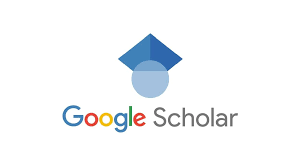Bakso Go Online: Inisiatif Promosi Digital dan Pembayaran QRIS bagi Pedagang Kaki Lima
DOI:
https://doi.org/10.61722/japm.v3i3.4736Keywords:
MSMEs, meatball vendors, QRIS, digital marketing, street vendors, digital transformationAbstract
his Student Creativity Program (PKM) aims to empower street meatball vendors through digital transformation based on online promotion and the use of the non-cash payment system, QRIS. The partners in this activity are groups of street meatball vendors in the [name of city/subdistrict] area, most of whom have not yet utilized digital media for marketing and still rely on cash transactions. The problems faced by the partners include limited ability to reach customers online, low understanding of digital marketing, and limited access to digital payment technologies.The solutions offered in this program include training in promotion via social media (Instagram, WhatsApp Business, and Google Maps), the creation of simple promotional content, and assistance in activating and using QRIS. Conceptually, this program adopts a state-of-the-art approach to the implementation of micro digital marketing and QR-based payment systems (Quick Response Code Indonesian Standard) as a strategic step for MSME adaptation to the Industry 4.0 era and post-pandemic conditions. The urgency of this activity lies in the need to enhance the competitiveness of informal micro-entrepreneurs so they can survive and grow through the adoption of affordable and accessible digital technologies. The implementation method includes field observation, hands-on training, creation of visual promotional materials, and regular post-training monitoring and evaluation. The results show an increase in the partners’ understanding of digital media, the creation of active social media promotional accounts, and the successful use of QRIS as an alternative payment method by customers. The outputs produced from this program include: (1) a PKM report, (2) a community service scientific article, (3) an educational documentation video, and (4) social media accounts for product promotion by partners. This activity is expected to serve as a replicable model for empowering informal sector MSMEs.
References
Bank Indonesia. (2023). Laporan Tahunan Sistem Pembayaran Indonesia. https://www.bi.go.id
Hapsari, D., & Susanto, H. (2022). Digital Transformation in Informal Sector SMEs: A Case Study of Street Food Vendors. Jurnal Ekonomi Digital, 4(1), 15–25.
OECD. (2021). The Digital Transformation of SMEs. https://www.oecd.org
Suryani, R., Lestari, A., & Prasetyo, B. (2023). QRIS Adoption and Digital Marketing Literacy among Small Street Vendors. Jurnal Inovasi Sosial dan Ekonomi, 5(2), 112–123.
Wibowo, F., & Kartika, M. (2024). Empowering Microbusiness with Social Media and QR Code Payment Integration. Journal of Digital Business and Community Engagement, 2(1), 37–48.
Bank Indonesia. (2023). QRIS: Inklusi Keuangan dan Digitalisasi UMKM. www.bi.go.id
Kemenkop UKM. (2024). Laporan Tahunan Digitalisasi UMKM Indonesia 2023–2024.
Mulyadi, D., & Indriyani, L. (2021). Pengaruh Digital Marketing terhadap Keputusan Pembelian Produk UMKM. Jurnal Ekonomi dan Bisnis Digital, 5(1), 1–12.
OECD. (2021). Digital Transformation of SMEs: Policies for Productivity, Inclusiveness and Resilience. OECD Publishing.
Suryani, R., Kurniawan, T., & Arifin, S. (2023). Adopsi QRIS di Kalangan Pedagang Informal: Studi Kasus di Kota Surakarta. Jurnal Inovasi Sosial dan Ekonomi, 5(2), 88–97.
Widodo, B., & Ramadhani, A. (2022). Lokasi Usaha dan Efektivitas Digitalisasi UMKM. Jurnal Kewirausahaan Digital, 4(3), 122–130.
Downloads
Published
Issue
Section
License
Copyright (c) 2025 JURNAL AKADEMIK PENGABDIAN MASYARAKAT

This work is licensed under a Creative Commons Attribution-ShareAlike 4.0 International License.












